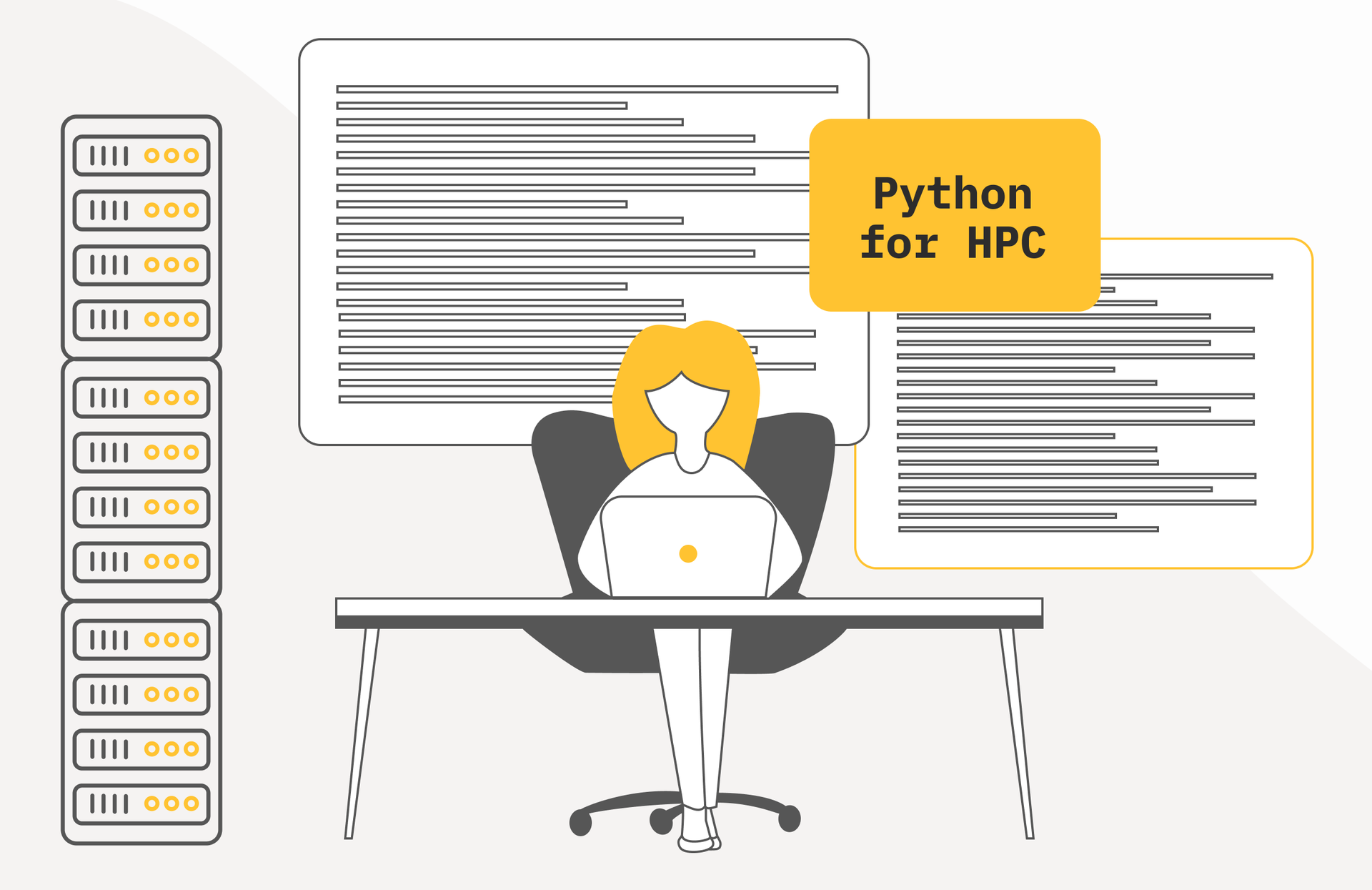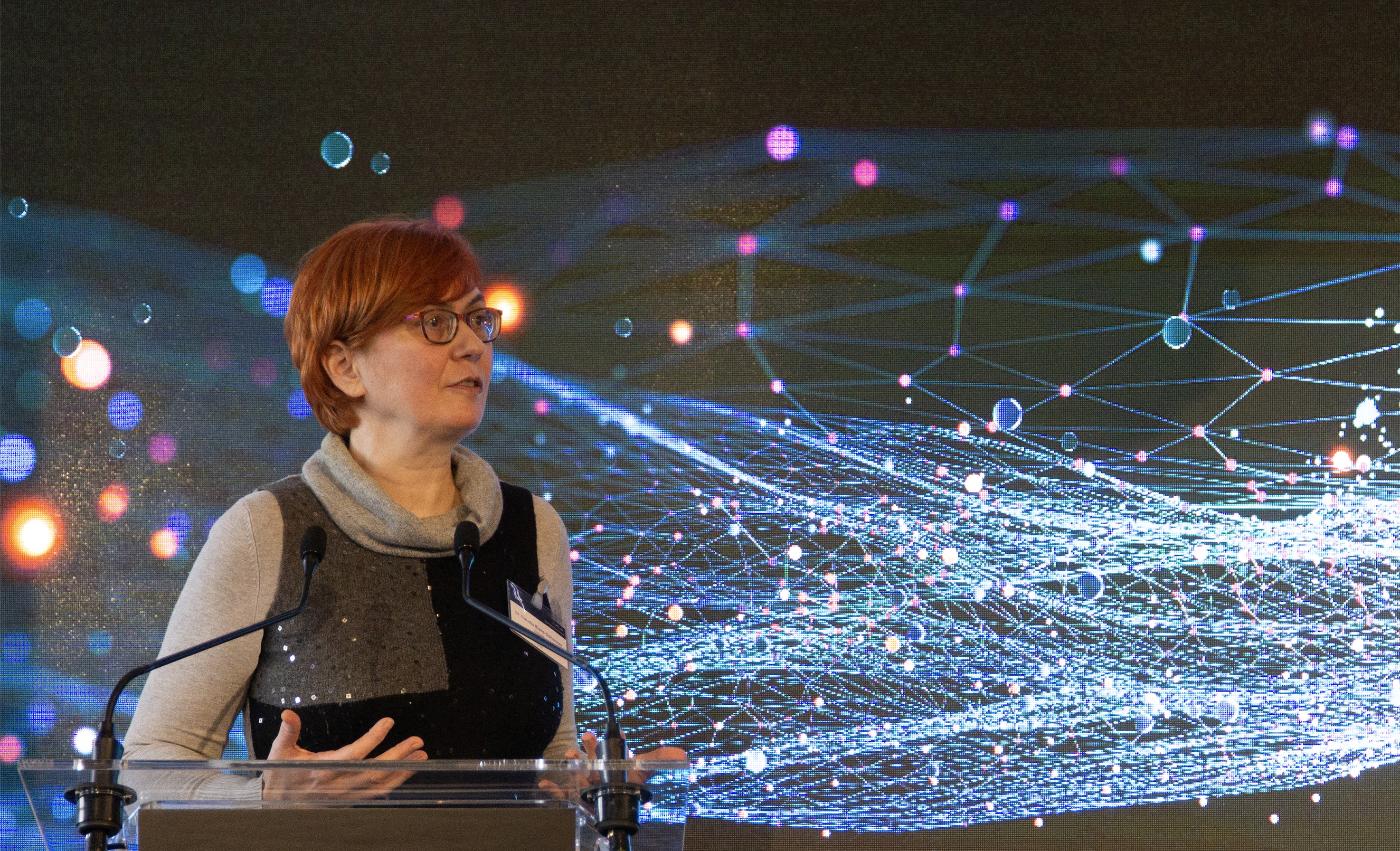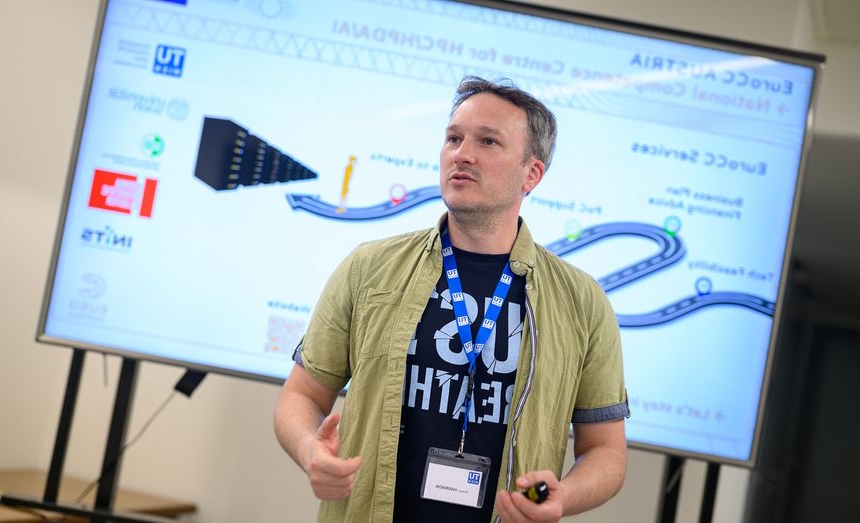Happy Birthday, Python!
Happy Birthday, Python!
auf Deutsch
Python celebrates its birthday on February 20th! Over the past 34 years, it has become one of the most widely used and adopted programming language. EuroCC Austria is one of the few centres offering Python training specifically for High-Performance Computing (HPC), opening doors to AI applications on high-performance systems. These trainings take place several times a year on Austria's supercomputer, the Vienna Scientific Cluster (VSC).
Python has what everyone wants: it’s easy to learn, simple to read, and quick to write. Additionally, it serves as one of the key languages for training AI applications. The downside? Its slower performance can heavily consume resources on a supercomputer if not optimised for HPC. While HPC users could learn languages like C, Fortran, or Rust, it’s not always necessary – Python works remarkably well when used correctly.
As part of the EU project EuroCC, one of our free Python-for-HPC courses will take place on May 12th, 14th, and 16th, 2025.
Python for HPC: Training on Austria’s VSC Supercomputer
For years, EuroCC Austria’s trainers have used a workshop format that equips participants with the skills to effectively use Python for HPC. Participants learn:
- Profiling and benchmarking techniques to identify bottlenecks in their code,
- Set up the HPC environment so that all familiar tools run smoothly,
- Become proficient with Python libraries that accelerate code execution. Leading the pack are NumPy, Numba, Cython, Dask, CuPy, and mpi4py. Unique to this course, lesser-known libraries are also highlighted (though not every library can be covered).
- All of this takes place on Austria’s supercomputer, the VSC.
“Our participants also learn how to build environments and containers to run their software independently of the hardware and operating system,” explains Simeon Harrison, a trainer at EuroCC Austria. “On top of that, we teach parallel programming – a key skill that allows HPC users to drastically reduce computation times by distributing tasks across multiple processors. Parallel programming is foundational for everything you do on a supercomputer.”
While this course doesn’t cover AI libraries like TensorFlow, PyTorch, or Huggingface’s Accelerate, there are other training programmes available that cover this topic – and many more beyond that: Foundations of LLM Mastery: Prompt Engineering Essentials – March 26, 2025 and Foundations of LLM Mastery: Retrieval Augmented Generation – April 30, 2025.
Feedback on our previous courses
“
The training was very well organised, the structure made a lot of sense. I found the introductory concepts helpful, as they were revisited throughout the course and served as a foundation for more advanced topics.
The very complex Python landscape was presented exceptionally well, providing a clear overview of the best tools currently available.
I liked that the course didn't focus on one approach, but gave an overview of different libraries and methods. The course materials are very well prepared, and I appreciate that the access to VSC was extended for a few days. Also having the recordings is very helpful.
All trainers were highly competent and proficient in all the tools used. The materials were also easy to understand and well explained.
„
About the Training
The course takes three days, with a free day between each session to allow participants to process what they’ve learned. About a quarter of the time is dedicated to hands-on activities, with theoretical concepts demonstrated directly using code examples.
It is beneficial for participants to have basic Python programming knowledge. “Ideally, you should also be familiar with the problem domain you’re working on, such as simulations,” adds Simeon.
See the training programme here.
About Python and Austria's Supercomputer Vienna Scientific Cluster (VSC)
Python is an open-source programming language used in a variety of fields, including data science, data analysis, and machine learning. The first version of Python was developed in 1991 by Guido van Rossum and has since become one of the most widely used languages worldwide. Surprisingly, the name “Python” doesn’t come from the snake but rather from the comedy group Monty Python.
VSC (Vienna Scientific Cluster) is Austria's supercomputer, co-financed by several Austrian universities. The computers are located at the TU Wien university in Vienna. From 2025, the newest supercomputer, MUSICA (Multi-Site Computer Austria), will be in use at locations in Vienna, Linz, and Innsbruck.
Researchers from the participating universities can use the VSC for their simulations, and under the EuroCC programme, companies also have easy and free access to computing time on Austria's supercomputer. Additionally, the VSC team is an important source of know-how: in numerous workshops, future HPC users, regardless of their level, learn everything about supercomputing, AI and big data.


